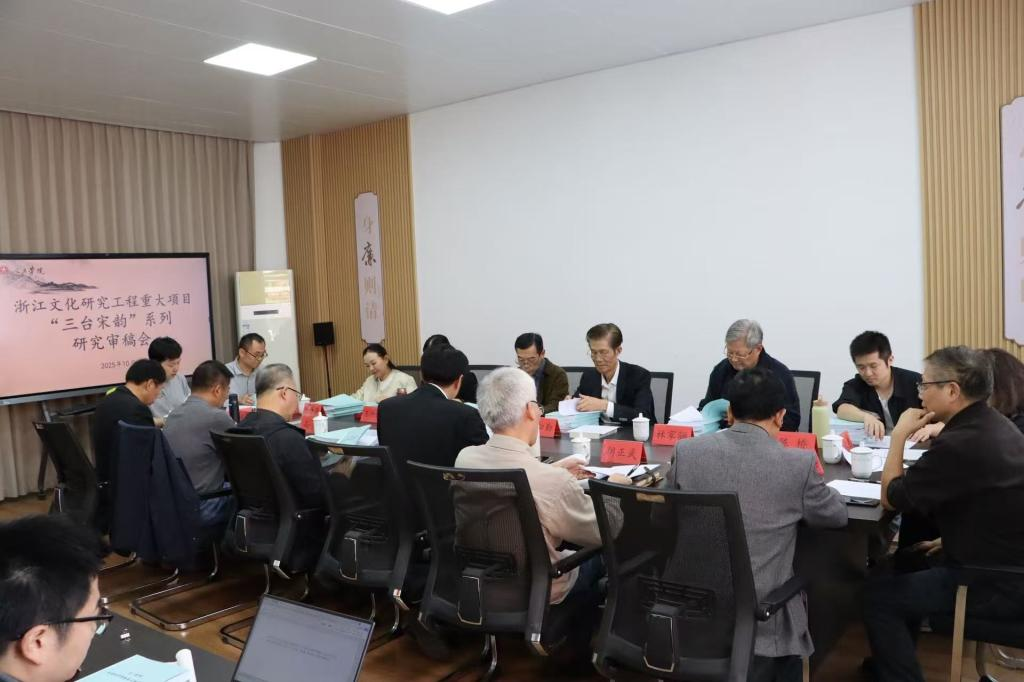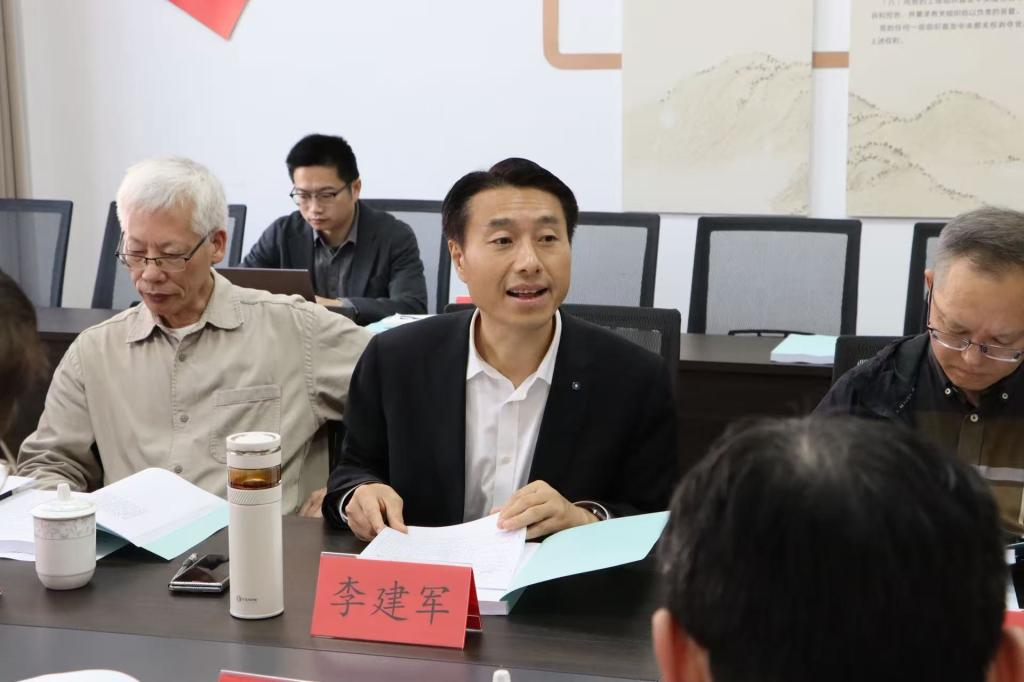The manuscript review meeting for the Zhejiang Cultural Research Engineering major project, the “Song Charm of Santai” series, was held on October 24 in the Linhai campus. Hosted by Lou Xinxing, Deputy Director of the Humanities and Social Sciences Office, the meeting featured invited reviewers Professor Shen Songqin (Hangzhou Normal University), Professor Lin Jialian (Zhejiang University), and Professor Tao Ran (Zhejiang University). Attendees included Wang Zhongmei, Vice Chair of the Taizhou Federation of Social Sciences; Section Chief Ruan Jingxiao; Luo Zhengming, Dean of the School of Humanities; and all project team members, who engaged in in-depth discussions on project progress and outcomes.

“Song Charm of Santai” manuscript review meeting
Taizhou University Vice President and Party Committee Member Li Jianjun reported on the project’s overall progress. Since its inception in September 2022, the project has maintained steady advancement and is expected to complete writing and revisions by December 2025. Li then focused on the general introduction, “Another Universe: The Theoretical Context and Regional Sample of Song Charm,” innovatively tracing the evolution of six aesthetic categories—“Yun” (Charm), “Qi” (Spirit), “Shen” (Spirit/Resonance), “Jing” (Realm), “Wei” (Flavor), and “Ge” (Style). He illustrated the aesthetic transition from “Tang Style to Song Charm” through representative Song arts like poetry, Jiang Kui’s ci, and Guo Xi’s landscapes, addressing the core question: “What is Song Charm?”
Other team members He Fangxing, Hu Zhengwu, and Gao Ping supplemented with updates on their sub-projects. Dean Luo Zhengming detailed the school’s support, covering resource allocation, academic exchange platforms, and team building, demonstrating high commitment to the project.

Li Jianjun delivering the report
During the review, Professor Shen Songqin praised the project’s focus on regional characteristics and the core of Song Charm but suggested ensuring balanced content, clear logic between chapters, and an improved overall framework. Professor Lin Jialian commended the team’s diligence and rich materials but advised emphasizing unique features in book titles and balancing narrative with analysis. Professor Tao Ran expressed admiration for the results, acknowledging the team’s local cultural commitment, and recommended optimizing structure, style, presentation, and reducing redundant content. Vice Chair Wang Zhongmei urged coordination among manuscripts to avoid imbalances in length and content distribution.
Participants actively discussed the experts’ suggestions, exchanged revision ideas, and reached consensus on future plans. The “Song Charm of Santai” series represents a significant achievement in Taizhou’s Song culture studies, contributing to Zhejiang’s broader efforts in this area.